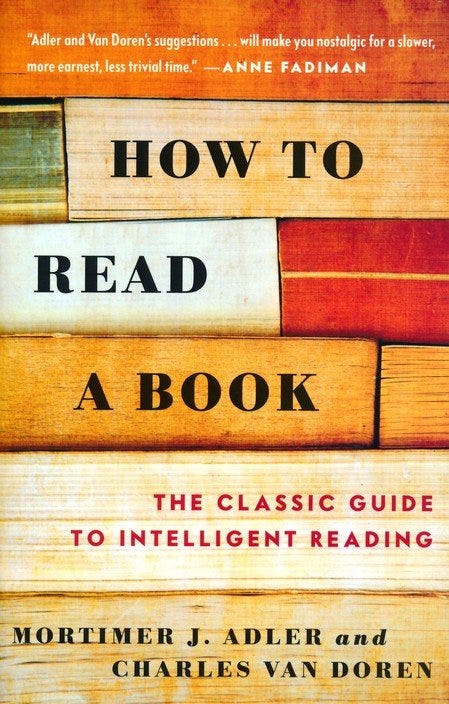How to Read a Book, Chapter 8
Chapter 8: Coming to Terms with an Author
This chapter is, for me, when things get really interesting. Adler and Van Doren defined a term as "the basic element of communicable knowledge", so clearly the entire purpose of writing and reading books is to communicate some type of knowledge or insight by using particular terms in particular ways. One way of looking at the structure and function of a book is as a vehicle for facilitating this creation of a shared terminology that author and reader can "come to terms" over to communicate.
"A term is not a word", they said. It requires qualification and context, because most words have several possible meanings (just check a dictionary!). They said unresolved ambiguity prevents communication. I agree, although I'm interested also in ways people use ambiguity to deliberately muddy the water (such as to score points in debate) by tricking people into thinking they have arrived at shared terminology when they actually have not. But I agree that coming to terms is invaluable, when people sincerely want to understand each other.
The authors continued their rules for analytical reading with Rule 5: "Find the important words and through them come to terms with the author." The ways you determine whether a word is important to the author are that it is used in a way you don't easily understand and its meaning seems to change based on the context in which it is used. Adler and Van Doren poked a little fun at early modern philosophers such as Leibniz who hoped to create a "philosophical language" in which every word had an exact meaning. This, they observed, would have been the death of poetry. They continued on about "key words", and I'm reminded of the Raymond Williams book with that title. It was a very allusive exploration of important ideas in Western culture, that leaned into the rich ambiguities in ways people had used the same words and how these meanings had changed over time. I don't think this is incompatible with what Adler and Van Doren were talking about here; but it does suggest language and meaning is complicated and historical.
The authors advised highlighting and thinking about "the most important words...those that give you trouble." But they said we should not be above taking hints from authors, who often go to great pains to point out the key words they want to use as terms. Often in sciences this takes the form of defining axioms. In history it often involves historiography: describing what previous interpretations have said and how the new author's ideas and terms update or correct or challenge what has gone before. Frequently this takes the form of arguing over the meanings of terms (democracy, capitalism, liberty, truth); sometimes sincerely in hopes of understanding the ideas they refer to more deeply, but sometimes only rhetorically, to score points.
They reminded us that every field has its own technical terminology and that there are some disciplines like philosophy that tend to use words that sound everyday to describe very specific ideas, and thus become terms. It's important to be sensitive to this sort of "scope creep", if only to avoid accepting an interpretation without examining its assumptions and reasoning. They then introduced an interesting idea: that nearly all of an author's meaning is carried in their terms, "The relatively small set of words that express an author's main ideas, his leading concepts, constitutes his special vocabulary. They are the words that carry his analysis, his argument." The words that surround these terms, they implied, are like supporting characters. While this strikes me as generally accurate, I'm reminded of some (more literary?) forms of history such as Microhistory, that depend heavily on narrative and on the particular. But maybe they have a different relationship with generalization and truth claims, so I won't worry too much about that right now.
Context is an important tool for determining meaning, and the authors used the metaphor of the jigsaw puzzle where it becomes easier to place pieces as more of the puzzle is completed. They warned that sometimes authors fail to define their own terms, suggesting that readers' focus on finding and understanding terms can help them distinguish good books from bad. Finally, they pointed out that terms can be expressed by phrases as well as words and that they are often more exactly described by a phrase or a short sentence than by a single word. This seems like an important place to remind ourselves that once a term has been defined by a complicated phrase, we should be careful to remember all the context, caveats, and conditions that may exist in the long description, when we use the word as a term.


